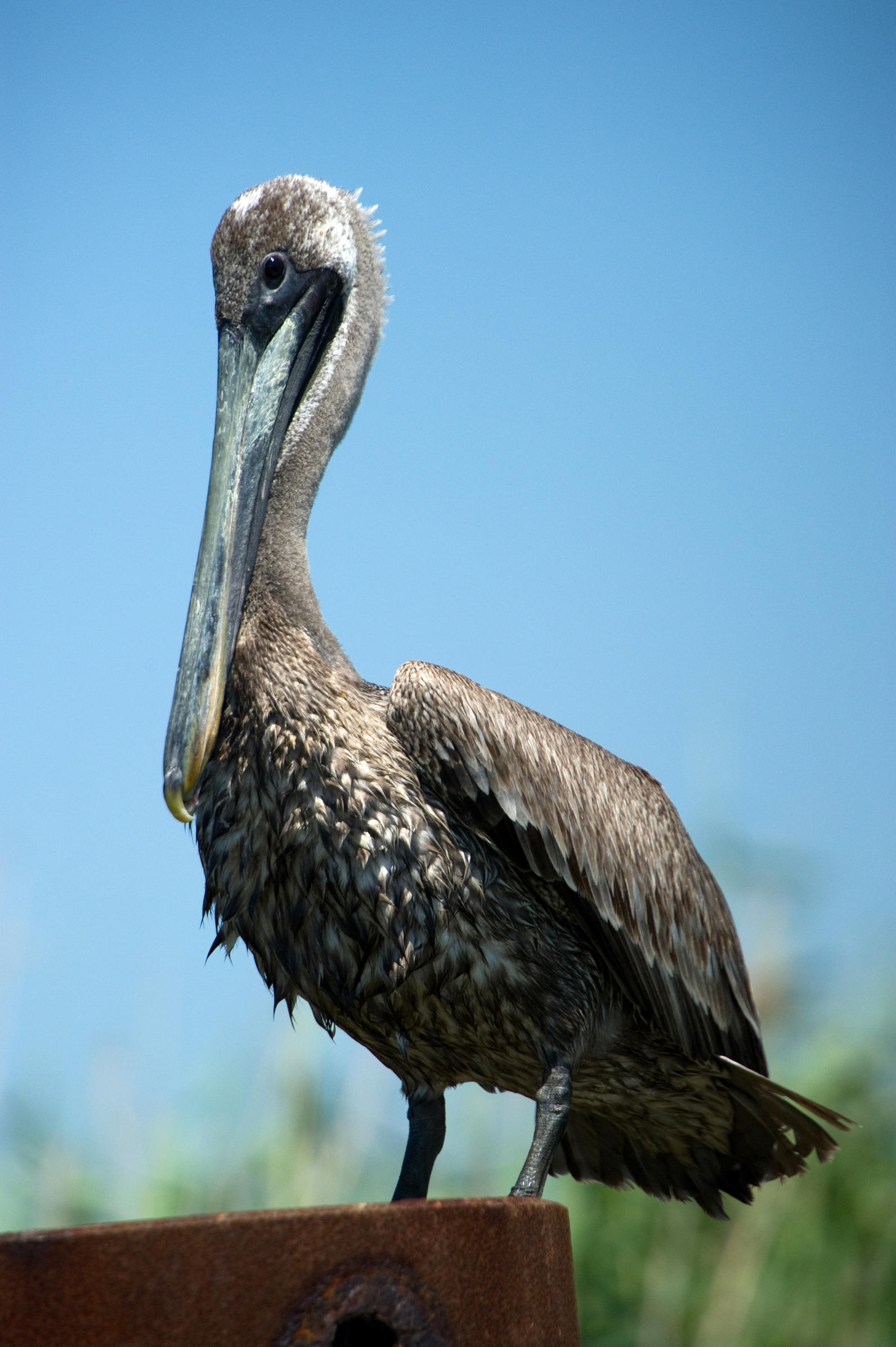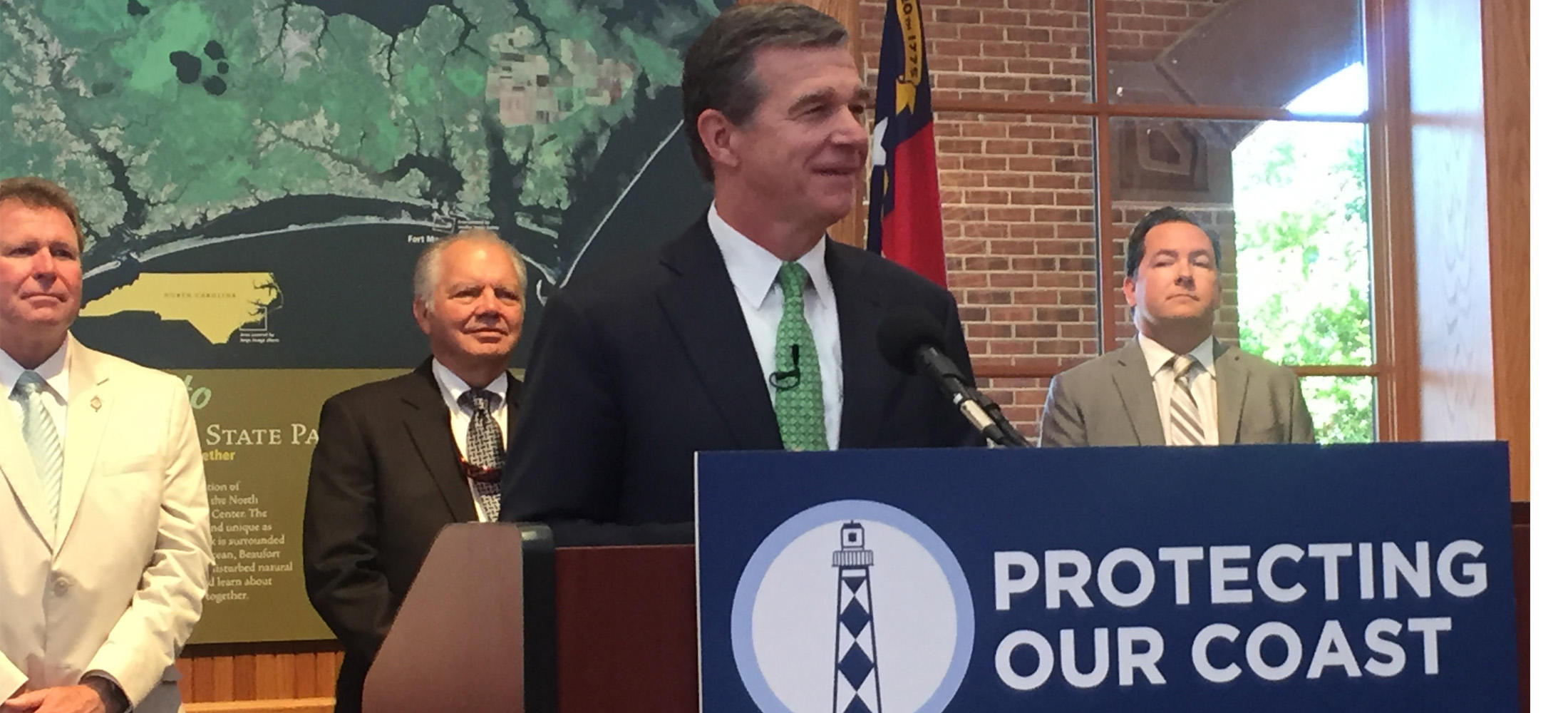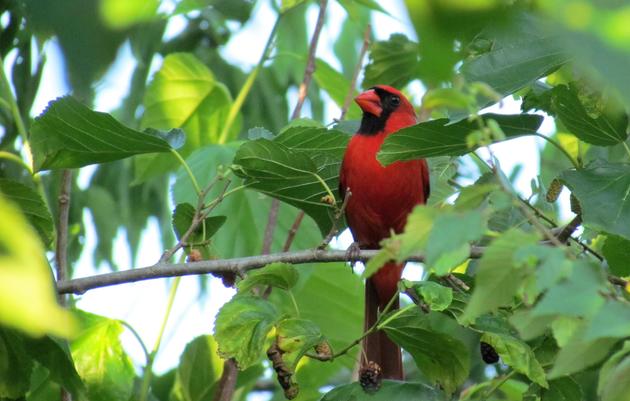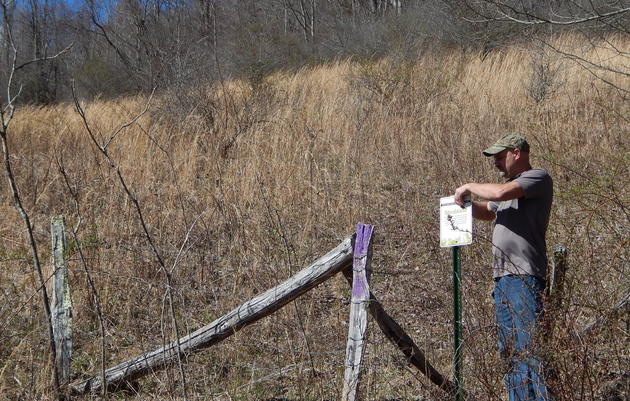At a press conference at Fort Macon State Park today, July 20, 2017, North Carolina Governor Roy Cooper announced his position against offshore drilling and seismic testing off the coast of North Carolina-- and we back his position completely!
“Migrating birds count on our coast each year to feed and nest, particularly along the Outer Banks,” explains Audubon North Carolina Executive Director Heather Hahn.
“North Carolina’s birds, beaches and people should not have to live in fear of an oil spill. The bottom line – birds and oil don’t mix.”

Audubon North Carolina is most concerned with the potential impact of offshore drilling on coastal birds and their habitats.
“Shorebirds are especially vulnerable to oil spills and other threats related to oil and gas exploration” said Hahn. “Their habitats are already in a precarious position due to development and rising sea levels. Our birds and communities depend on a clean and healthy coast, and both are too valuable to be put at risk.”
Birding has a tremendous economic impact on our state, and tens of thousands of birds like the Brown Pelican, American Oystercatcher, and Royal Tern rely on our shores for survival. It is imperative that we keep them safe.
FAST FACTS: OUR COASTS, OUR BIRDS, AND OIL
Coastal birds include the American Oystercatcher, Least Tern, Royal Tern, Ibis, Brown Pelican, Piping Plover, and Great Egret.
Coastal birds require clean, safe coastal habitats to migrate, nest, and feed during critical points in their annual cycle.
Birds can be very loyal to the places they visit during each phase of their life-cycle. The same bird can re-visit the same habitat each year for nesting, foraging, migration, and wintering. The slightest change in that habitat can affect the survival of that bird.
The 2010 BP oil spill in the Gulf of Mexico resulted in the deaths of an estimated one million birds, including approximately 12 percent of the Brown Pelican population in the northern Gulf.
The economic impact of ocean-dependent tourism in North Carolina is estimated at $3 billion and supports more than 32,000 jobs.
Studies of the economic impact of birds and birding in the United States list the southeastern United States as the region that generates the greatest economic impact of any region of the United States. According to the US Fish & Wildlife Service, birders and other wildlife viewers contribute nearly $1 billion each year to North Carolina’s economy.
At Cape Hatteras National Seashore alone, the National Park Service estimates that the seashore attracts 2.2 to 2.7 million visitors annually, contributes $131 million to the local economy, and supports 1,800 jobs.








